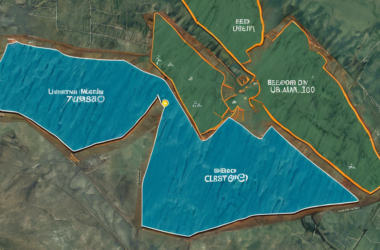The International Atomic Energy Agency (IAEA) has completed a groundbreaking review of Uganda’s uranium production cycle, assessing the country’s capabilities to develop their own uranium exploration programme. This assessment is a significant step towards Uganda’s goal of utilizing nuclear power to meet its clean energy objectives and provide electricity access to nearly its entire population by 2030.
The IAEA mission, which involved experts from various countries, evaluated key aspects such as human resource capacity and regulatory framework to support uranium exploration in Uganda. The team also made recommendations to help the country move closer to achieving its nuclear energy goals, including the establishment of a well-funded exploration programme and the development of skilled personnel for uranium exploration.
While Uganda has identified potential uranium-rich areas, no proven resources have been discovered yet. The government is committed to following international best practices in uranium exploration, ensuring that activities are conducted according to global standards.
The successful completion of this IUPCR mission is a significant milestone for Uganda’s nuclear energy aspirations. It provides the Ministry of Energy and Mineral Development with a solid understanding of the requirements for evaluating the country’s uranium occurrences and paves the way for the development of a domestic uranium supply to support the introduction of nuclear power.
The mission was implemented as part of a larger IAEA Technical Cooperation Project aimed at supporting uranium exploration and evaluation in Uganda, highlighting the importance of this initiative in the country’s energy landscape. With continued support and implementation of the recommended steps, Uganda is on track to realize its nuclear energy goals and enhance its energy security in the coming years.










